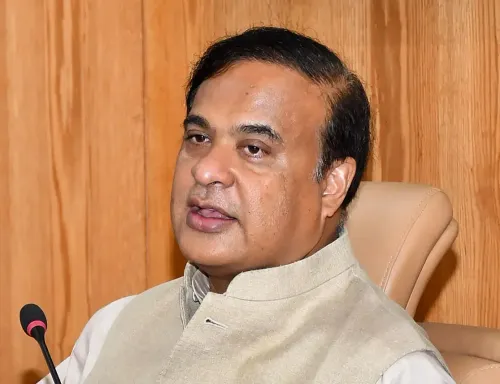Is Tamil Nadu Spending Rs 25,100 Crore on Power Purchase to Meet Rising Demand?

Synopsis
Key Takeaways
- Tamil Nadu is investing over Rs 25,100 crore for power procurement.
- The state experiences daily electricity demand of 16,000 MW.
- Current generation includes 3,000 MW from thermal, 1,000 MW from hydropower, and 150 MW from gas.
- A daily procurement of 500 MW during peak hours is planned.
- Integration of renewable energy sources is a key focus.
Chennai, Nov 12 (NationPress) As the state experiences a daily electricity demand of 16,000 megawatts (MW), Tamil Nadu is preparing for an extensive power purchasing initiative valued at over Rs 25,100 crore over the next five years. This initiative aims to guarantee a consistent supply throughout regular and peak hours.
According to the Tamil Nadu Generation and Distribution Corporation (TANGEDCO), the state currently produces an average of 3,000 MW from thermal plants, 1,000 MW from hydropower sources, and approximately 150 MW from gas-based facilities.
The remaining energy requirements are satisfied through central generating stations and private electricity providers. To tackle the growing consumption, especially during times of high demand, the state has issued tenders to acquire 500 MW of electricity daily during peak hours for the next three years. Additionally, a separate tender has been launched for a five-year period to purchase 1,000 MW of power continuously from private producers.
The peak hours, occurring between 6 a.m. and 10 a.m. and again from 6 p.m. to 10 p.m., represent the most expensive time for electricity procurement. Even with a capped maximum tariff of Rs 8 per unit, the daily cost for 500 MW would reach approximately Rs 3.2 crore, resulting in around Rs 3,500 crore over three years.
Furthermore, the agreement for 24-hour supply of 1,000 MW over five years is estimated to cost around Rs 21,600 crore. Consequently, the total expenditure for both contracts will amount to Rs 25,100 crore.
Officials highlighted that this decision is aimed at avoiding outages during the forthcoming northeast monsoon season and maintaining grid stability as the state's demand continues to grow steadily.
The government is also looking into integrating renewable energy sources, particularly solar and wind, to gradually lessen reliance on expensive thermal and imported electricity.
This new procurement strategy is anticipated to offer significant support to Tamil Nadu's industries and residential consumers, ensuring a dependable and stable power supply despite varying generation levels from hydropower and renewable sources.









